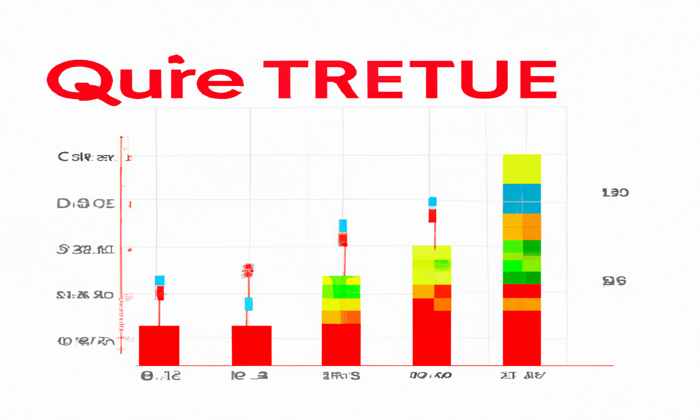Seized cryptocurrencies are emerging as a pivotal source of revenue for local governments in China, despite the country’s stringent crypto trading ban. With a steady influx of illegal transactions, Chinese authorities have found themselves amassing a considerable inventory of digital assets through confiscation. Reports indicate that these seized cryptocurrencies have led local officials to discreetly enlist private firms for conversion into liquid cash, further complicating the nation’s stance on these digital currencies. This development underscores the growing necessity for effective oversight amidst a landscape fraught with potential for misuse, especially given the backdrop of China’s crypto restrictions. As such, the management and liquidation of these seized assets highlight the ongoing conflict between enforcement policies and economic benefits derived from cryptocurrency revenues.
The topic of confiscated digital assets has gained prominence as local authorities in China grapple with the financial implications of their strict regulations against virtual currencies. Many officials are now navigating the complexities of managing illicitly obtained crypto holdings, turning to private sector involvement as a solution. Despite the overarching ban on cryptocurrency trading, the disposal of these confiscated tokens presents unique economic opportunities, leading to an evolving discourse around cryptocurrency liquidation. Concerns about illegal transactions in China have further propelled the dialogue, as the government endeavors to balance enforcement with the potential for revenue generation. This paradox reflects a pressing need for frameworks that clarify the legal landscape surrounding cryptocurrencies while also addressing the challenges posed by their illicit use.
The Growing Significance of Seized Cryptocurrencies in China
Seized cryptocurrencies are becoming a pivotal asset for local Chinese governments, creating an unexpected revenue stream following the nationwide ban on crypto trading. While the central government’s efforts to eliminate illegal cryptocurrency transactions have intensified, the collection of these assets has concurrently grown. Local authorities are faced with a paradox: maintaining compliance with the ban while finding ways to liquidate and profit from the seized virtual currencies. This intricate balance raises questions about the future role of cryptocurrencies in China’s economy, as illegal transactions continue to fill government coffers.
The influx of seized cryptocurrencies may very well reshape local government financial strategies, especially given the potential revenues that can be generated through legitimate disposal methods. The situation presents an opportunity for private firms to engage with governmental authorities, turning these otherwise unproductive assets into monetary gains. However, this reliance on external companies raises concerns about the safeguards in place, highlighting the need for a robust framework to oversee this new facet of the economy.
China’s Crypto Ban and Its Impact on Illegal Transactions
China’s stringent cryptocurrency ban, initiated in 2017 and comprehensively enforced in 2021, aimed to eradicate illegal transactions associated with digital currencies. However, the ban has inadvertently led to a surge in underground trading activities. As illegal transactions proliferate, so too does the volume of seized cryptocurrencies, which remain a hidden but significant aspect of China’s shadow financial landscape. The enforcement against crypto trading appears paradoxical, as local governments are now indirectly benefiting from the very activities they seek to curtail.
The contradiction between the ban and the ongoing illegal transactions raises critical questions about regulatory efficacy and public policy. Local authorities are caught in a bind, where the need to liquidate seized cryptocurrencies meets stringent governmental restrictions. Consequently, robust aversion towards cryptocurrencies is tempered by their potential use as a tool for financial recuperation for municipalities, creating a unique scenario in which the government must reassess its position on digital currencies.
The Role of Private Firms in Liquidating Seized Cryptocurrencies
Private firms are increasingly stepping into the fray to assist Chinese authorities in liquidating seized cryptocurrencies, navigating the intricacies of capital controls and regulatory frameworks. These companies are tasked with converting digital tokens into cash while adhering to legal requirements, primarily through licensed offshore exchanges. This involvement represents a shift towards privatization in a market that has been mostly controlled by public sectors, unveiling a commercial aspect that many had not considered post-ban.
Moreover, the inclusion of private firms in this process raises discussions around legality and accountability. Industry experts posit that these entities can operate successfully by ensuring asset protection and compliance with existing regulations. Nonetheless, calls for a clearer legal framework have grown, as the lack of definitive guidelines complicates the legitimacy of these firms. Establishing a formal disposal system, as suggested by legal experts, could help mitigate risks and enhance transparency, ultimately benefiting both the government and the industry.
Regulatory Challenges in Managing Seized Cryptocurrencies
The ongoing challenge posed by the management of seized cryptocurrencies stems from the inherent conflict between China’s staunch anti-crypto stance and the practical need to address acquired digital assets. Regulatory hurdles continue to hinder the effective disposal of these tokens, with legal experts advocating for a more refined approach by authorities such as the People’s Bank of China. This institution is better equipped to navigate the complexities of cryptocurrency transactions than municipal agencies, which often lack the necessary expertise.
Additionally, the growing complexity of cryptocurrency-related crimes demands heightened oversight from both governmental and legal frameworks. As local authorities increasingly rely on private firms to handle seized assets, the potential for mismanagement or illegal activity looms large. The establishment of clear regulations that prioritize both asset security and compliance will be pivotal in ensuring that the liquidation of seized cryptocurrencies aligns with broader financial regulations without compromising the integrity of the ongoing ban.
The Future of Cryptocurrency in China’s Economic Landscape
As China grapples with the consequences of its cryptocurrency ban, the future of digital currencies within its economic framework remains ambiguous. While the ban was ostensibly designed to protect citizens and maintain financial stability, the reality is that cryptocurrencies may soon find a way into sanctioned channels. Local governments, facing mounting pressure to generate revenue, may advocate for relaxed regulations or a new framework that legitimizes the use of seized cryptocurrencies in specific contexts.
Looking ahead, the potential for cryptocurrencies to generate legitimate revenues could prompt a paradigm shift in China’s approach to digital assets. This evolution would necessitate comprehensive reforms—not just to enable the management of seized tokens, but also to create a secure environment for crypto transactions. Striking a balance between regulation and innovation could ultimately influence the trajectory of China’s financial future as both the local economy and the global landscape continue to evolve.
Implications of Cryptocurrency Revenues for Local Governments
The dynamic nature of cryptocurrency revenues poses significant implications for local governments in China, particularly as they navigate the complexities of a strict ban alongside growing financial needs. Seized cryptocurrencies represent a unique opportunity for municipalities to incorporate additional funding mechanisms into their budgets, which is particularly pertinent amidst fluctuating revenues from traditional sources. The trade-off between adhering to national regulations and exploiting this financial avenue presents a challenging dilemma.
Exploring avenues to monetize seized cryptocurrencies could lead to aquiescence in the ban or a reformation of its strictures. Local authorities may advocate for policies that align with their financial objectives, prompting adjustments at higher government levels. As the culture of cryptocurrency continues to develop, and if the political will permits, China might witness a reexamination of digital currencies in its economic landscape.
Analyzing China’s Crypto Liquidation Strategies
China’s strategy for liquidating seized cryptocurrencies is an evolving process, emphasizing the delicate balance between compliance with the national ban and the need for effective asset management. Recent trends indicate that local governments have begun to engage private firms for support, which allows them to navigate the complexities of converting these digital assets into much-needed capital. However, this approach is fraught with challenges, particularly regarding the need for regulatory satisfaction.
Evaluating the effectiveness of these liquidation strategies requires understanding the broader implications of reliance on private entities. Stakeholders must consider the potential risks involved, including market shifts and regulatory crackdowns. The lack of a clear legal framework governing these activities can foster uncertainty, necessitating calls for increased transparency and formalization of the processes surrounding the disposal of seized cryptocurrencies.
The Intersection of Cryptocurrency and Illegal Transactions in China
The interplay between cryptocurrency and illegal transactions in China reveals a complex web of financial behavior that defies the government’s ban. As illicit activities burgeon, they often leverage the anonymity of digital currencies, creating an environment where law enforcement struggles to keep pace. However, the resulting seized cryptocurrencies, while initially considered a deterrent, have inadvertently turned into a financial asset for local authorities.
Understanding this intersection is crucial for policymakers as they grapple with the consequences of their regulations. As authorities become more adept at managing seized cryptocurrencies, it becomes essential to evaluate whether current policies sufficiently address the root causes of illegal transactions. Furthermore, the focus should shift towards establishing preliminary frameworks that not only address the ban but also create conditions for formalized, legal cryptocurrency usage in the future.
Legal Perspectives on Cryptocurrency Disposal in China
The legal landscape surrounding cryptocurrency disposal in China remains murky, primarily due to the existing ban on trading. While local governments increasingly encounter scenarios where seized cryptocurrencies demand attention, the absence of clear regulations complicates matters significantly. Legal experts emphasize the necessity of formulating guidelines to ensure that the disposal process is compliant with both national laws and financial regulations.
Effective legal frameworks are paramount to preemptively address potential challenges that could arise as local governments and private firms engage in cryptocurrency liquidation. Establishing a clear legal basis for the treatment of seized tokens not only strengthens accountability but also promotes ethical practices in managing these digital assets. Proper guidance can pave the way for safer transactions, ultimately setting a precedent for future engagement with cryptocurrencies.
Frequently Asked Questions
What happens to seized cryptocurrencies in China?
In China, seized cryptocurrencies are handled by local governments despite the ban on crypto trading. Authorities often enlist private firms to convert these seized tokens into cash as part of their revenue collection efforts.
How does the China crypto ban affect the liquidation of seized cryptocurrencies?
The China crypto ban poses challenges for the liquidation of seized cryptocurrencies. Local authorities face a conflict between the prohibition of crypto trading and the need to generate revenue from illegally acquired digital currencies.
Are there legal frameworks for managing seized cryptocurrencies in China?
Currently, there is a lack of formal legal frameworks for managing seized cryptocurrencies in China. Experts suggest that the People’s Bank of China should take charge of these assets to align with existing regulations.
What role do private companies play in the disposal of China seized cryptocurrencies?
Private companies can assist in the disposal of China seized cryptocurrencies by converting them into cash. However, they must comply with regulations, ensure asset safety, and utilize licensed offshore exchanges to avoid legal conflicts.
Why are seized cryptocurrencies important for local Chinese governments?
Seized cryptocurrencies have become a significant revenue source for local Chinese governments as they navigate the restrictions of the crypto ban while managing illegal transactions.
What risks are associated with the liquidation of seized cryptocurrencies in China?
Liquidating seized cryptocurrencies in China poses various risks, including legal repercussions for private firms and potential challenges due to the existing ban on crypto trading. There’s also a concern about asset safety and compliance.
Can illegal transactions lead to the creation of a cryptocurrency reserve in China?
While illegal transactions lead to the accumulation of seized cryptocurrencies, suggestions have been made that the government could create a cryptocurrency reserve from these tokens, much like other proposed financial strategies.
How do blockchain service providers handle seized cryptocurrencies in China?
Blockchain service providers in China can assist in managing seized cryptocurrencies by ensuring compliance with capital controls and utilizing licensed offshore exchanges to facilitate the disposal process.
| Key Points |
|---|
| Seized cryptocurrencies are a growing revenue source for Chinese local governments despite a crypto trading ban. |
| Local governments are turning to private firms to convert seized tokens into cash amid illegal transactions. |
| Chen Shi highlights that these actions do not align with the official ban, necessitating better oversight. |
| Guo Zhihao emphasizes conflict between the crypto ban and the need to liquidate seized digital currencies. |
| Suggestions include intervention from the People’s Bank of China for better management of seized cryptocurrencies. |
| Private companies are involved in the legitimate disposal of cryptocurrencies, ensuring asset safety and compliance. |
| Experts suggest the government clarify the legal status of virtual currencies and establish a formal disposal system. |
| China shut down local exchanges in 2017 and imposed a total crypto trading ban in 2021, affecting global markets. |
Summary
Seized cryptocurrencies are increasingly relevant in China’s financial landscape, as local governments grapple with the implications of a nationwide ban on crypto trading. While illegal transactions continue to generate a growing pool of seized digital assets, the challenge remains for authorities to reconcile the need to manage these tokens with existing prohibitions. The call for a structured disposal system and active governmental oversight represents a crucial step toward addressing the burgeoning issue of seized cryptocurrencies.
Seized cryptocurrencies are emerging as a crucial financial asset for local Chinese governments, particularly in the wake of China’s comprehensive ban on crypto trading. Despite strict regulations on digital currencies, authorities are finding ways to capitalize on these assets, which are often obtained from illegal transactions China has been combatting fervently. Local governments are increasingly outsourcing the liquidation of these cryptocurrencies to private firms, creating an unconventional but necessary revenue stream in the face of a strict crypto ban. Reports indicate that as China seized crypto tokens continue to pile up, the challenge of managing and monetizing them becomes ever more pressing. With the rise of cryptocurrency revenues tied to illicit activities, there’s an urgent call for stronger regulations and oversight to navigate this complex landscape.
In the context of the banning of digital currencies, confiscated digital assets are proving to be a vital financial resource for regional administrations in China. The nation’s prohibition of cryptocurrency trading has not hindered the flow of these assets, particularly those involved in unlawful exchanges. Authorities are utilizing alternative strategies, including partnerships with private sector entities, to liquidate these seized digital currencies for cash and thus bolster local finances. As the need to address these illegally obtained cryptocurrencies grows, so too does the debate surrounding the legality and management of such assets. The ongoing reliance on crypto disposals prompts discussions about potential regulatory reforms and oversight mechanisms to better align with China’s existing crypto policies.














Leave a Reply